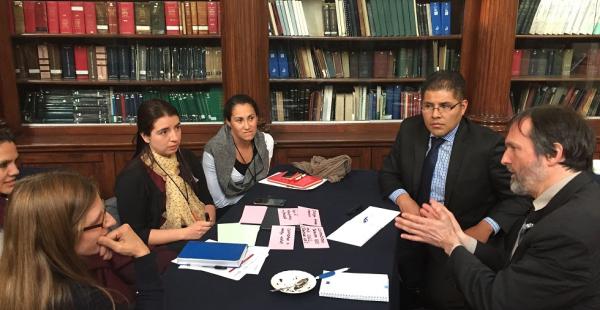
Mexico: Post-Paris Discussions and Actions
Following the adoption of the Paris Agreement in December 2015, nations all around the world must now implement substantial measures to build on the momentum and ensure that the agreement comes into effect.
Mexico has reached key milestones in the transition to a low carbon economy and during the Paris negotiations reaffirmed its position as a committed leader, for example by joining the High-Ambition Coalition and the Carbon Pricing Leadership Coalition. It was also the first developing country to present an ambitious Intended Nationally Determined Contribution (INDC).
Now, after the 21st Conference of Parties (COP), Mexico is preparing to implement its INDC and is considering different instruments that could play a role in reaching the 2030 targets. In January 2016, for example, a high-level delegation from Germany visited Mexico to discuss with high ranking officials from different ministries the necessary steps for introducing an Emissions Trading Scheme (ETS). A three-day workshop addressed key design elements and possible interactions with other instruments for climate change mitigation, such as the existing carbon tax and the future use of ‘Clean Energy Certificates’. An ETS can be a valuable instrument for Mexico as it involves the private sector in mitigation efforts, and through its cap guarantees that emissions in the most emissions-intensive sector are reduced. More information is available via the link on the right.
Another important climate policy is the carbon tax, which entered into force in 2014. By joining the Carbon Pricing Leadership Coalition, Mexico demonstrated its interest in and commitment to carbon pricing as an instrument for reducing emissions. In this context, decision-makers from the Secretariat of Finance and Public Credit (SHCP) and the Ministry of Environment and Natural Resources (SEMARNAT) met with internationally renowned experts in February to exchange best practices on how carbon tax impacts can be maximised through effective design, implementation and integration with other policy tools. Both instruments, taxes and trading, can be complementary but should be well coordinated to enhance effectiveness. More information is available via the link on the right.
Mexico has also started to assess methodological options to track the achievement of its NDC goals, and to develop its own accounting system. Last January, decision-makers from Costa Rica, Colombia and Mexico discussed the impact of COP21 provisions on MRV and accounting systems and proposed next steps for the short- to medium-term to develop suitable accounting rules. More information is available via the link on the right.
These are some of the topics recently discussed in Mexico that will play an important role in INDC implementation in the coming years. All three activities described above were implemented jointly by the Mexican Government and the Deutsche Gesellschaft für Internationale Zusammenarbeit (GIZ) GmbH on behalf of the German Federal Ministry for the Environment, Nature Conservation, Building and Nuclear Safety (BMUB).

